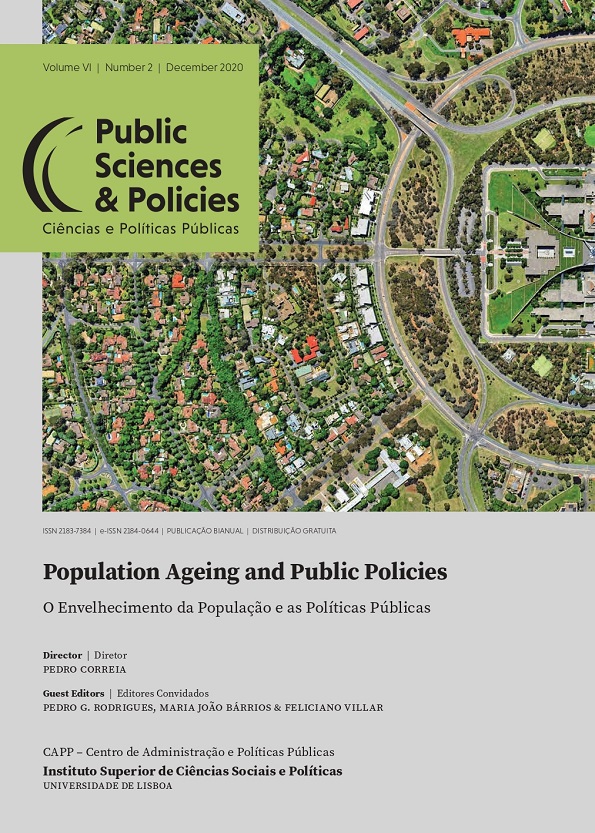Aging in Place in Portugal
DOI:
https://doi.org/10.33167/2184-0644.CPP2020.VVIN2/pp.21-39Keywords:
Aging in place, Aging, PortugalAbstract
Aging in place means the ability to continue living at home and in the community over time, safely and independently. The promotion and enhancement of aging modalities at home and in the community is a model of social intervention currently favored by the World Health Organization as people get older (WHO, 2015). In this article we present the main data resulting from the collection and systematization of about eighty local initiatives, exploring how the concept of aging in place is operationalized in Portugal by public, private and associative entities. The initiatives identified are spread across the country and fall into twelve categories: support for caregivers; fight against isolation; gerotechnologies; home support; day and social centres; social intervention; leisure and learning; housing and physical spaces; health, nutrition and physical activity; safety; mobility; and psychological well-being. While some initiatives make more sense in a particular social context, others can be replicated anywhere, essentially because of their universal objectives, such as combating isolation or promoting mobility. All in all, we are looking at a good set of examples of what can be done locally to make it easier for people who so desire to grow old at home and in the surrounding community, thereby preserving their identity and ensuring a sense of continuity in its life cycle.
Downloads
Published
How to Cite
Issue
Section
License

This work is licensed under a Creative Commons Attribution-NonCommercial-NoDerivatives 4.0 International License.



